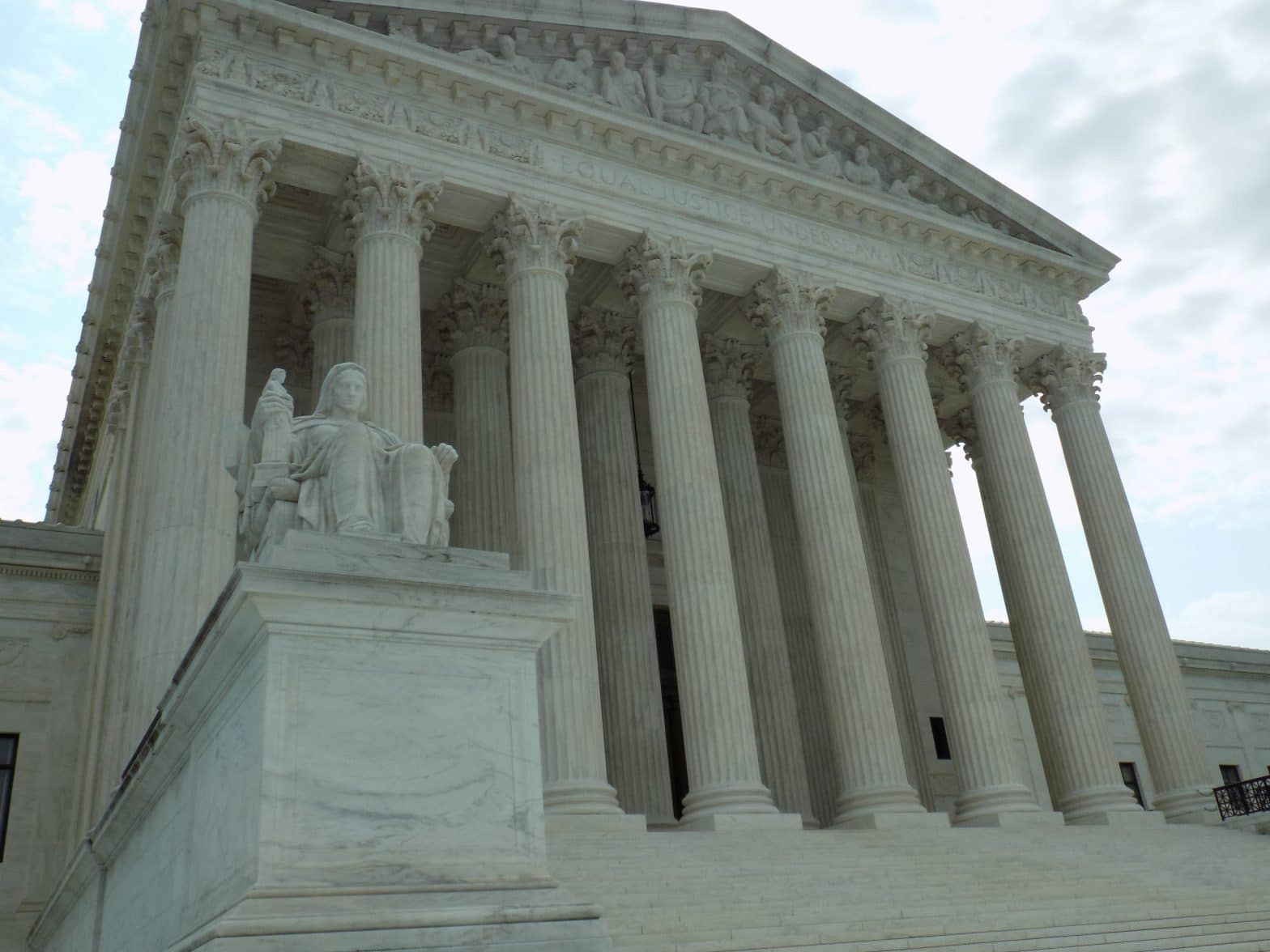Biden Administration Asks Supreme Court to Uphold ACA

WASHINGTON – The White House on Wednesday informed the Supreme Court it believes the Affordable Care Act should be upheld, reversing the position taken by the Trump Administration.
The justices heard oral arguments in November in multiple cases involving a group of Republican-led states attempting to invalidate the Act on the grounds that a key provision was struck down as unconstitutional by a federal judge in Texas.
In December 2018, U.S. District Judge Reed O’Connor in Fort Worth sided with the coalition of states, who argued the Affordable Care Act could no longer stand now that there’s no penalty for Americans who don’t buy insurance.
The U.S. Supreme Court had upheld the law in 2012, by classifying the legislation as a tax. But since Congress removed the individual mandate in 2017, O’Connor ruled, there’s no way the ACA can be allowed to stand.
“The Individual Mandate can no longer be fairly read as an exercise of Congress’s Tax Power and is still impermissible under the Interstate Commerce Clause — meaning the Individual Mandate is unconstitutional,” O’Connor wrote. “The Individual Mandate is essential to and inseverable from the remainder of the ACA.”
Without the system being upheld by a wide pool of mandated participants, the ACA cannot stand, O’Connor said.
Prior to and during oral arguments before the Supreme Court, the Trump Administration supported that position.
A ruling by the justices is due by the end of June.
But on Tuesday, Deputy Solicitor General Edwin Kneedler informed the court that with the change in administration, “the Department of Justice has reconsidered the government’s position in these cases.”
“The United States no longer adheres to the conclusions in the previously filed brief of the federal respondents,” Kneedler wrote.
What’s more, he said, “It is now the position of the United States that the amended Section 5000A is constitutional.
“In National Federation of Independent Business v. Sebelius (NFIB) [2012], this Court held that the payment provision in Section 5000A could be sustained as a valid exercise of Congress’s constitutional power because it offered a choice between maintaining health insurance and making a tax payment,” he continued. “In so ruling, the Court noted that no negative legal consequences attached to not buying health insurance beyond requiring a payment to the IRS, and that the government’s position in the case confirmed that if someone chooses to pay rather than obtain health insurance, that person has fully complied with the law.”
According to Kneedler, Congress amended one portion of the Affordable Care Act without changing a previous section that made the latter section possible.
In other words, while Congress amended Section 5000A(c), reducing the penalty for not getting insurance to zero, the payment itself remained lawful because Congress didn’t move to amend or strike the section of the law — Section 5000A(b) that made the payment an alternative to purchasing insurance in the first place.
Kneedler said it is the position of the Biden Administration that “Congress’s decision to reduce the payment amount to zero therefore did not convert Section 5000A from a provision affording a constitutional choice into an unconstitutional mandate to maintain insurance.
“Rather than imposing a new burden on covered individuals, the 2017 amendment preserved the choice between lawful options and simply eliminated any financial or negative legal consequence from choosing not to enroll in health coverage,” he wrote.
Kneedler went on to say that should the Court conclude that Section 5000A(a) is unconstitutional, it is the position of the Biden Administration that it is severable from the remainder of the Affordable Care Act.
“The severability inquiry typically requires asking ‘whether Congress would have wanted the rest of [a statute] to stand, had it known that’ one or more particular provisions of the statute would be held invalid,” he wrote. “And the ‘normal rule is that partial, rather than facial, invalidation is the required course.’
“In the view of the United States, that presumption of severability cannot be overcome here, particularly as the 2017 Congress that reduced to zero the amount of the shared responsibility payment option under Section 5000A simultaneously left in place the remainder of the ACA,” he said.

























